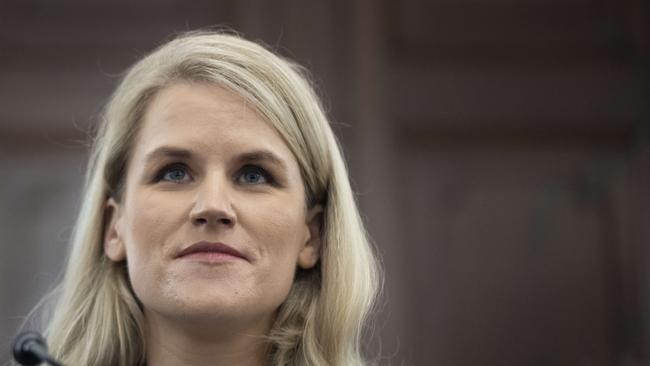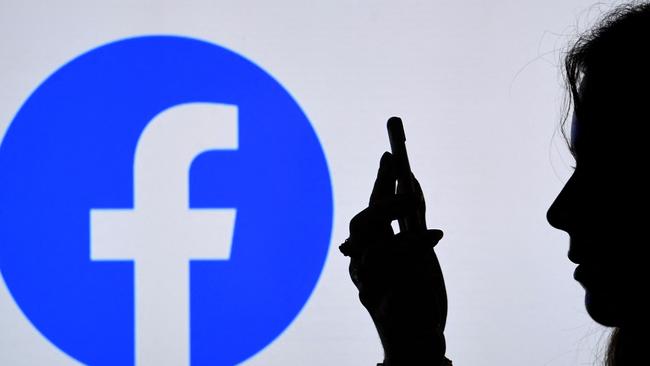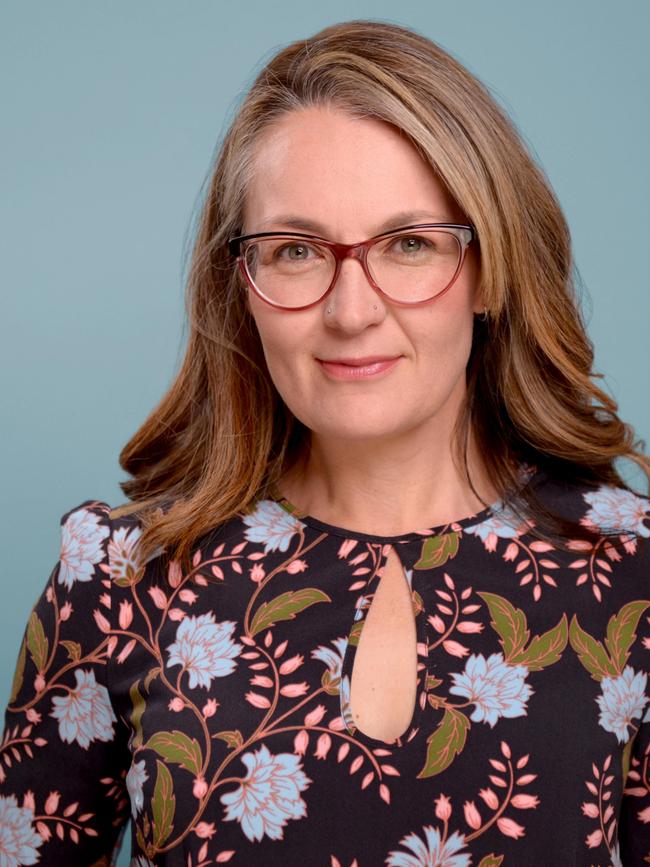Meta whistleblower warns Facebook, Instagram ‘knows’ platforms are harmful for kids
A former Facebook employee has backed a movement urging parents to wait until their child is aged 14 before they get a phone due to harms of social media.

National
Don't miss out on the headlines from National. Followed categories will be added to My News.
Australian kids shouldn’t have smartphones before they are 14 years old due to the serious mental and physical health risks posed by unregulated access to Meta platforms like Instagram and Facebook, a whistleblower has warned.
Frances Haugen, a former Meta product manager who in 2021 leaked thousands of documents exposing the inner workings of the tech giant, has revealed she is “really concerned about kids” impacted by harmful algorithms and bombarded with notifications.
In an exclusive interview Ms Haugen, who will address the Australian Information Security Association CyberCon in Canberra on Tuesday, said Australia was “a little bit behind” the US in combating harms like sleep deprivation, addiction, anxiety and poor mental health linked to social media use.
Ms Haugen highlighted a growing movement in the US called “wait for eight,” where parents and school communities organise for young children to “pledge” to wait until Grade 8 — when a student is about 14 years old — before they get a phone.
She said this also takes pressure off parents who might feel “bad” for not giving their child a phone.

Ms Haugen said Australia was a “first mover” on many aspects of online safety, like cracking down on illegal activity, it must focus on social harms.
“Not all kids will get contacted by a predator, but almost all kids will struggle with sleep deprivation, almost all kids will struggle with how compulsive it is … or deal with anxiety, because they’re overstimulated,” she said.

Ms Haugen said Meta did not have “nefarious” intent, but its algorithms failed to consider the holistic impact of pushing a young person repeatedly toward content that could fuel eating disorders, anxiety or depression.
She said Facebook was aware sending children notifications during the school day lead to complaints of being distracted, anxious and less productive.
Internal company documents subpoenaed in the US outline Meta’s knowledge of these harms, such as one discussing “problematic Facebook use,” which stated that “smartphone notifications caused inattention and hyperactivity among teens, and they reduced productivity and wellbeing”.

Psychologist and digital wellbeing expert Jocelyn Brewer said she would “love” the community to shift toward waiting until a child was in high school before they got a phone.
But she said the early years should still be used to equip students with the social and emotional skills to participate in online spaces.
“The horse has usually bolted for teens, this has to start at 7, 8 and 9-years-old,” she said.
“Everything we learn takes practice, so if we don’t set up situations where kids can practice in a range of contexts.”
Ms Brewer said a “graded approach” of increased exposure under supervision, while also teaching students about the neurological impact of these platforms so they can make better choices that are far more likely to stick than imposing a ban.
“If you say to a teen, ‘this is banned,’ it makes it something they want,” she said.
“Rather than get them off-side, we can explain to kids time is a non-renewable resource … are you okay with paying these platforms with it.
“That gives kids autonomy to make better choices.”

In January Meta unveiled new protections to give teens “more age-appropriate experiences” on its apps, including removing content related to self harm from their feeds.
The company announced it would also be automatically placing teens into the “most restrictive content control settings” on Instagram and Facebook, which would reduce their exposure to sensitive content.
Meta has also defended its staffing, arguing it has quadruped its safety and security teams to more than 40,000 since 2016 and blocks “millions of fake accounts from being created every day”.
In addition to the harms for young users, Ms Haugen has been a vocal critic of tech giants’ failure to adequately staff trust and safety teams, as well as combat foreign influence, misinformation and disinformation campaigns.
At the cyber conference on Tuesday, Ms Haugen will sound the alarm on a new website called ‘Words of Justice,’ which she said represents a “new method of running an influence operation”.
The website uses AI to help people write social media posts in a “co-ordinated and targeted way,” which could have serious implications for upcoming elections.
Kids Helpline: 1800 55 1800
Originally published as Meta whistleblower warns Facebook, Instagram ‘knows’ platforms are harmful for kids





